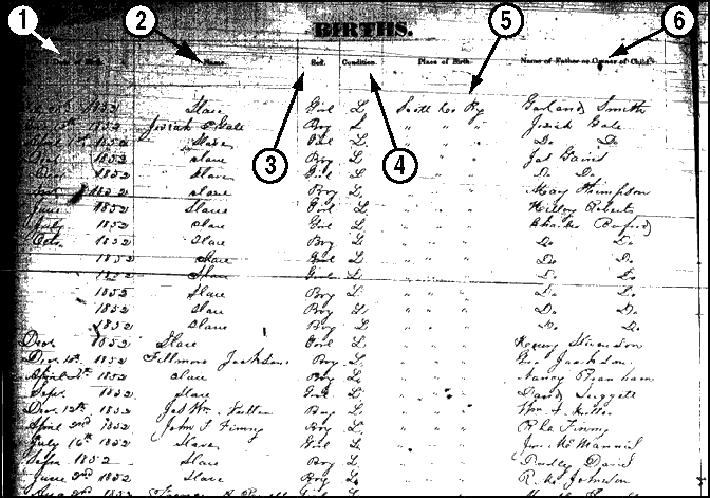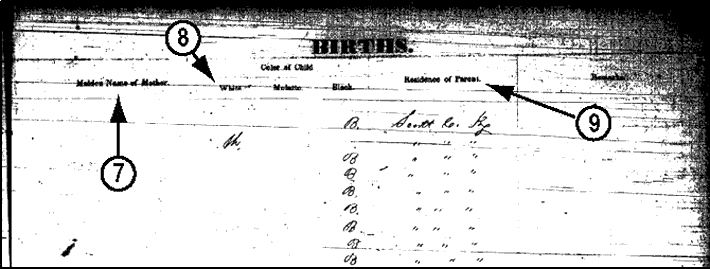
| 1. |
Date of birth
|
| 2. |
Name of child
|
| 3. |
Sex
|
| 4. |
Condition
|
| 5. |
Place of birth
|
| 6. |
Name of father or owner of child
|
|
from Scott County, Kentucky 
|

| 7. |
Maiden name of mother
|
| 8. |
Color of child
|
| 9. |
Residence of parent
|

|
